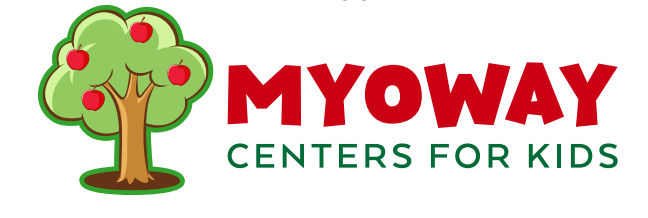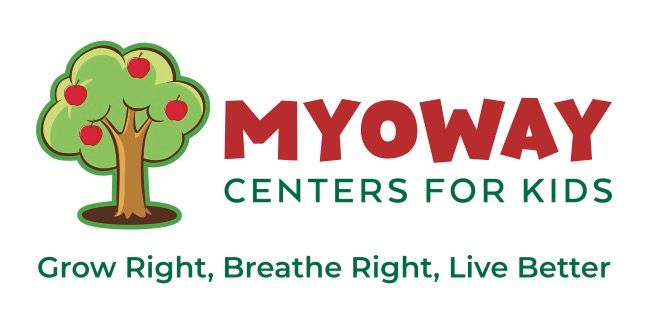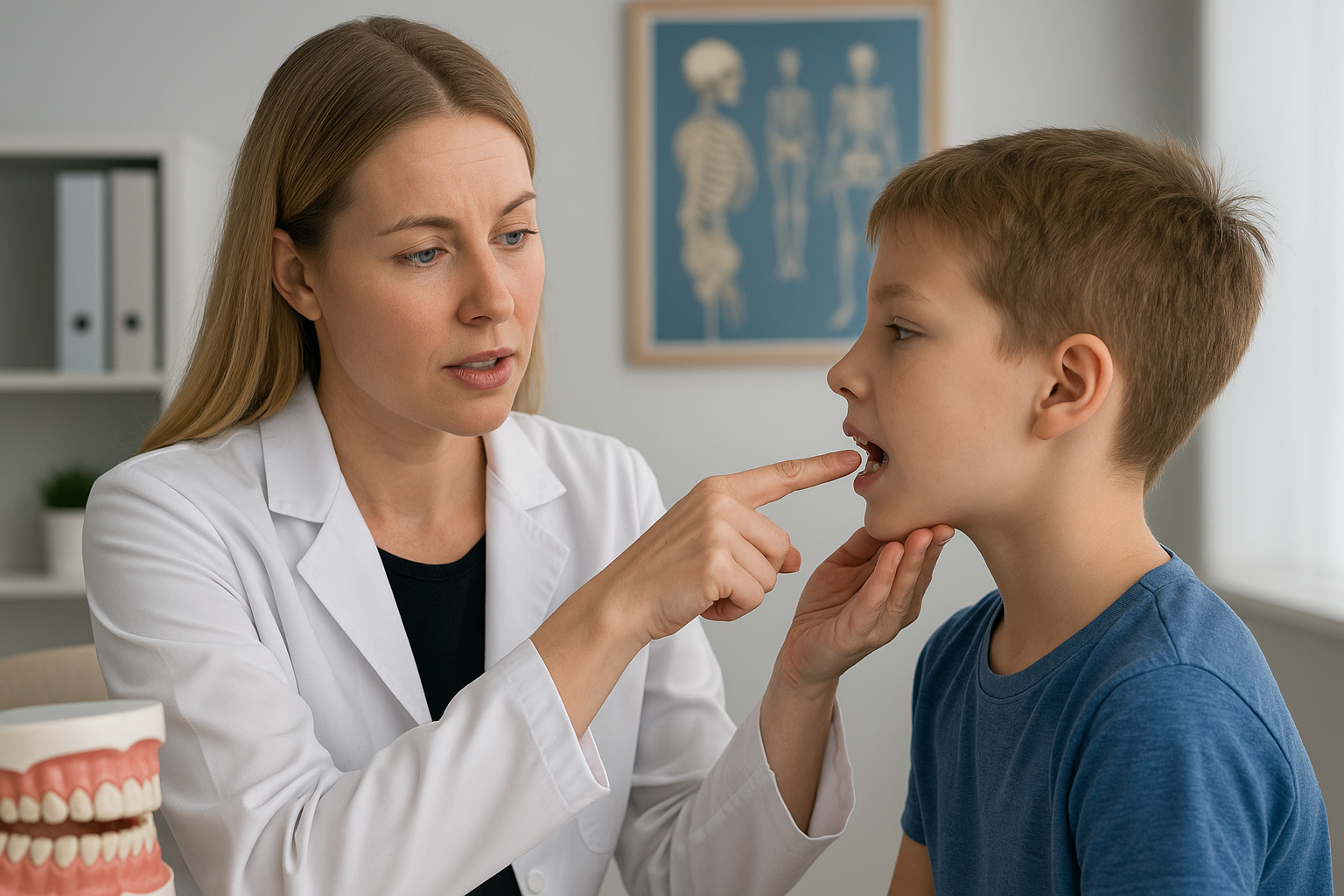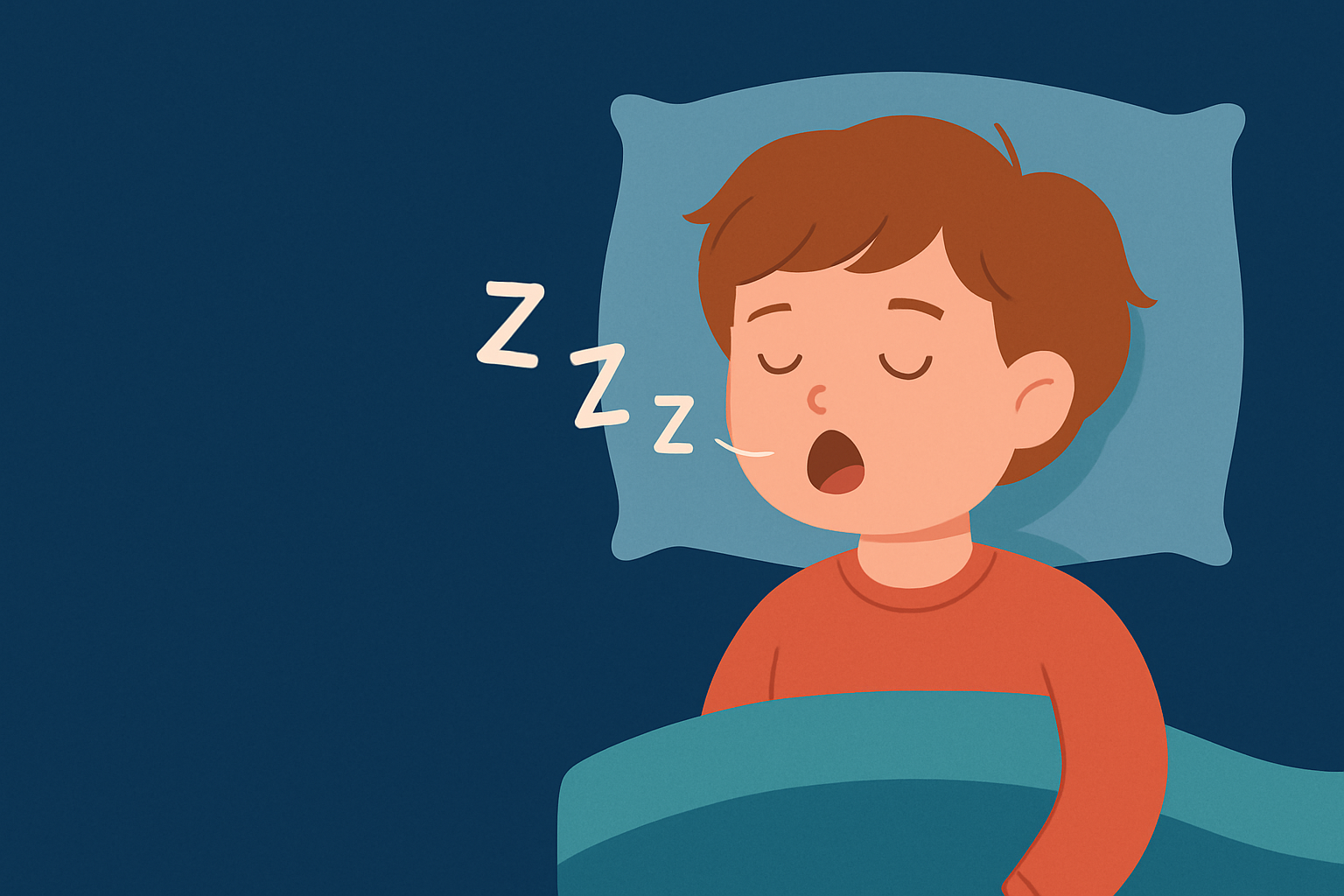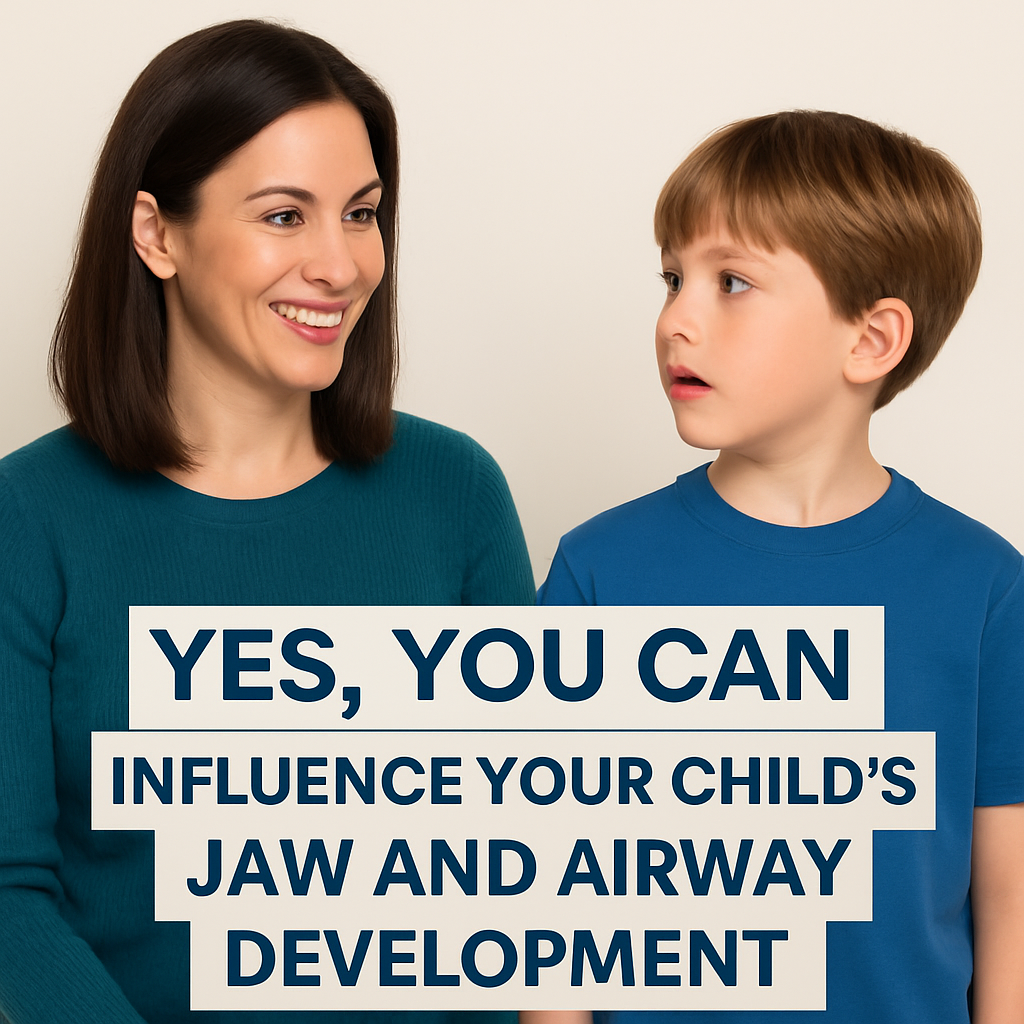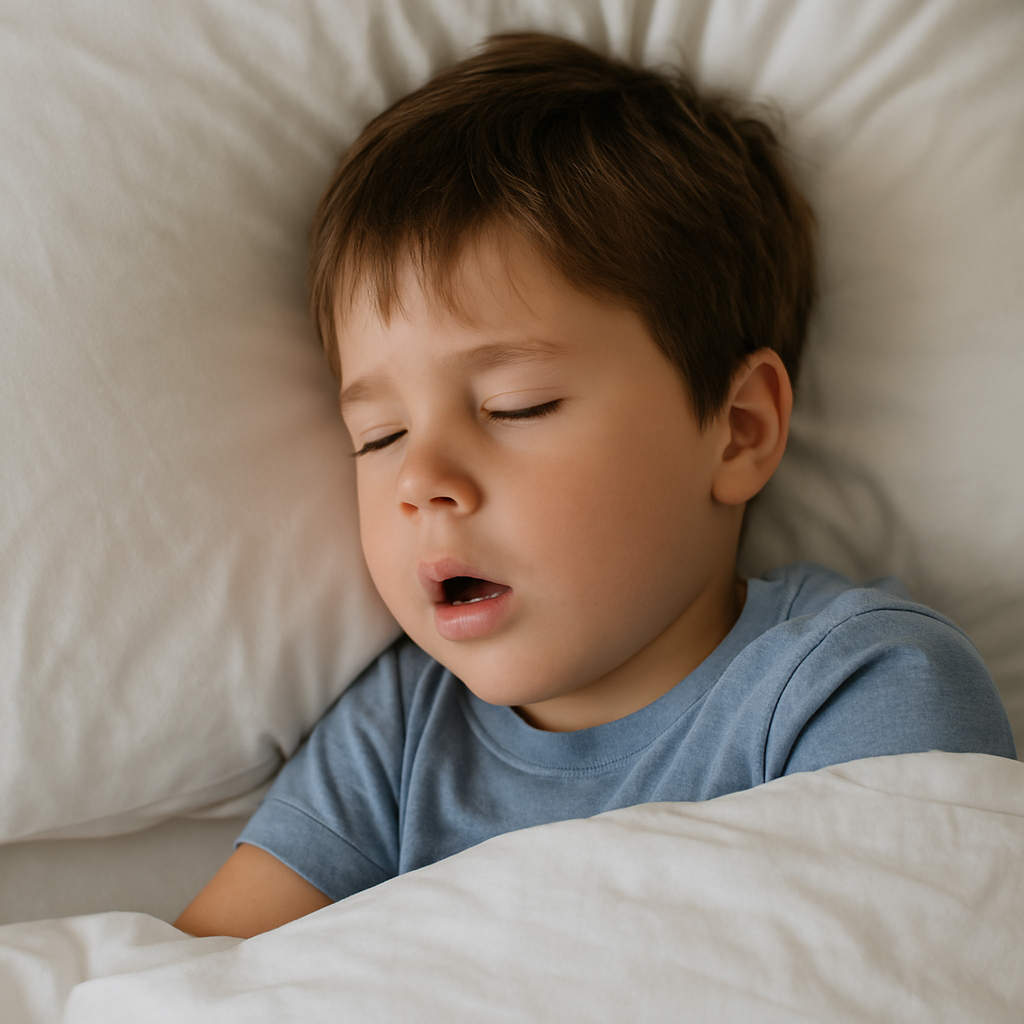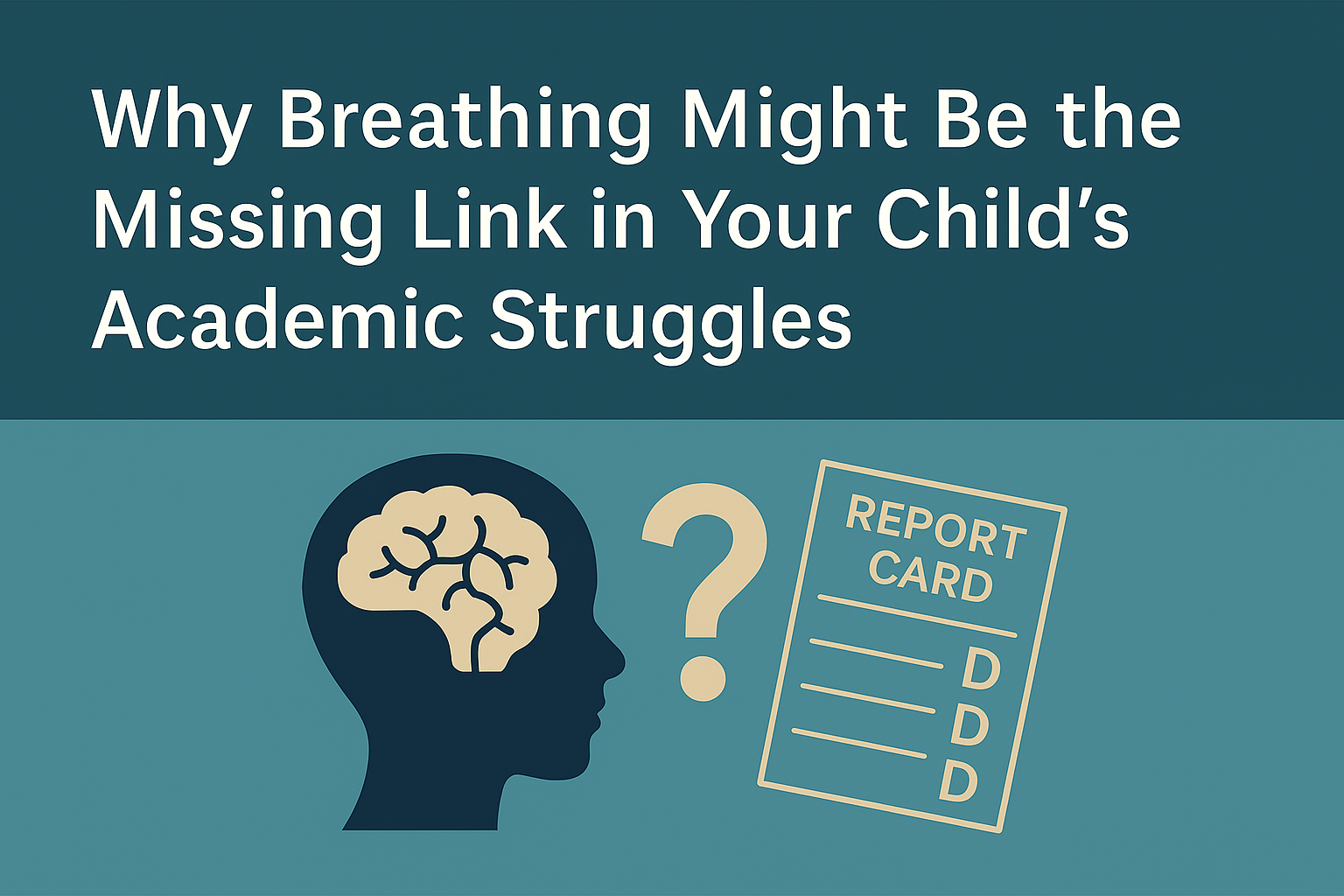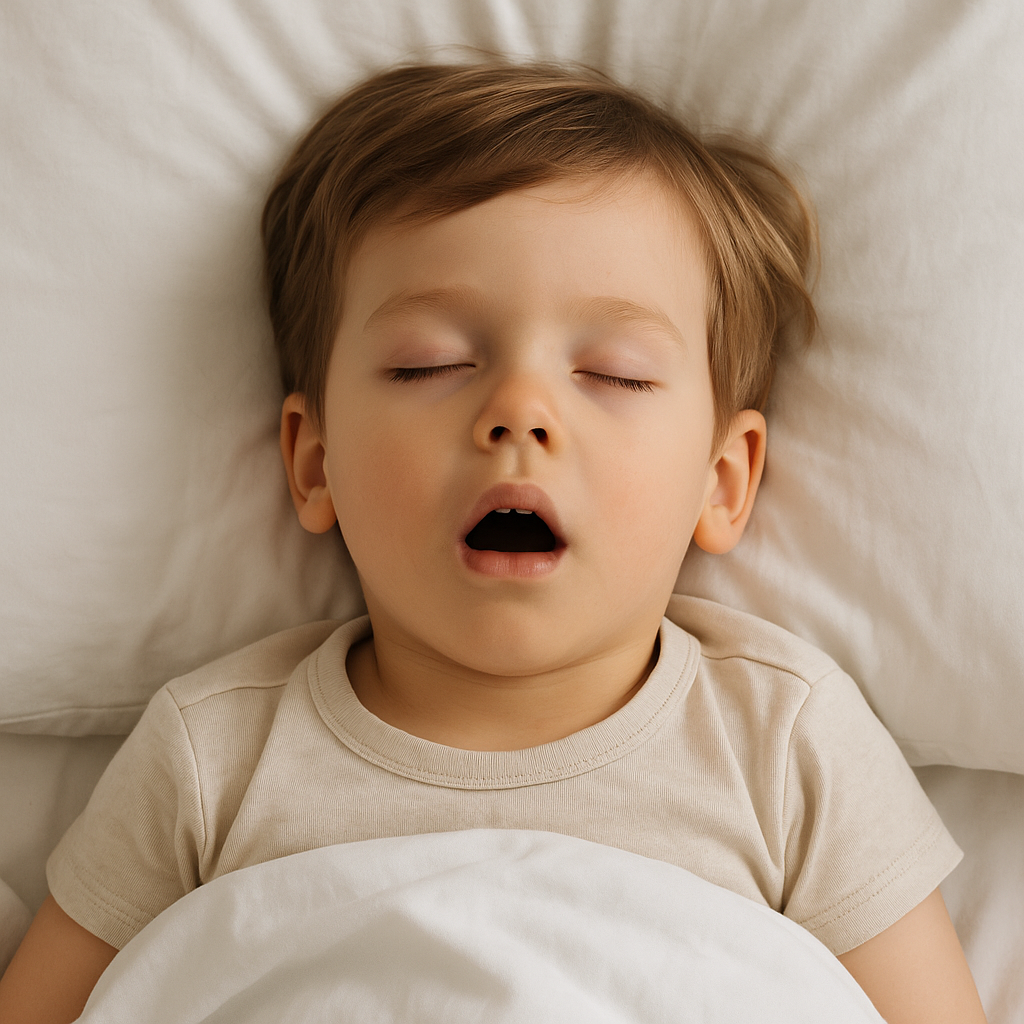Can Better Sleep Improve Your Child’s Grades?
As parents, we often focus on tutoring, routines, and screen time when our kids struggle at school. But what if the real issue starts with how they breathe while they sleep?
At MyoWay Center for Kids, we recently heard from a parent whose child began performing better in school after starting our myofunctional therapy program. There were no new teachers, no extra tutoring, and no significant changes at home. The only difference was this: their child began breathing better, sleeping deeper, and waking up more rested.
This story is not as uncommon as it may sound. Many families come to us looking for help with mouth breathing, restless sleep, or behavioral concerns. What they do not expect is how much their child’s learning and focus improve as a result.
Let us take a closer look at how sleep and breathing affect the brain, and how airway-focused therapy can quietly transform academic outcomes.
The Hidden Link Between Sleep and School Performance
Sleep is not just a time for rest. It is when the brain processes what it has learned, consolidates memories, and prepares for the next day. For children, especially those in their critical developmental years, high-quality sleep is essential for focus, behavior regulation, emotional balance, and learning retention.
When a child does not get enough restorative sleep, the impact can show up in many ways:
- Trouble paying attention in class
- Forgetfulness or slow recall
- Emotional outbursts or irritability
- Poor grades or slipping academic performance
- Being labeled as "unmotivated" or even misdiagnosed with attention disorders
In many children, it comes back to one critical issue: the airway.
Why Breathing Quality at Night Matters
Not all sleep is created equal. A child might be in bed for eight to ten hours, but if they are mouth breathing, snoring, or grinding their teeth, they may not be getting the deep, restorative sleep their brain needs.
Mouth breathing, in particular, is a red flag. It often indicates that the airway is compromised. When children cannot breathe efficiently through their nose, their oxygen levels drop at night. This can cause sleep fragmentation, poor oxygenation, and increased stress on the brain and body.
Here is what happens when that continues over time:
- The brain does not fully recharge
- Memory and learning pathways are disrupted
- The child wakes up tired, foggy, and distracted
- Focus and impulse control decline
Over time, this poor sleep quality can look very similar to attention deficit behaviors or learning disabilities. But in reality, the brain is simply not functioning at its full potential due to chronic sleep deprivation and poor oxygenation.
The Role of Myofunctional Therapy
This is where myofunctional therapy comes in. Myofunctional therapy is a structured approach that focuses on developing the muscles of the face, mouth, and jaw to support proper breathing, swallowing, and tongue posture. At MyoWay Center for Kids, we pair this therapy with medical-grade appliances designed to guide jaw and airway development in children.
By training children to breathe through their nose, improving tongue posture, and developing the airway, we help create the conditions needed for deep, healthy sleep. That means better oxygen flow to the brain, fewer nighttime disruptions, and more cognitive readiness during the day.
Parents often notice the changes before their child’s teacher does:
- Their child is less tired after school
- Homework takes less time and feels less stressful
- Focus improves in the classroom
- Emotional regulation gets easier
- Report cards start to reflect the change
It is not just about breathing. It is about unlocking the full potential of a child’s brain by removing one of the biggest hidden barriers: an underdeveloped airway.
A Real Story That Inspired This Article
The story we mentioned at the beginning of this article is worth repeating. A parent recently contacted our team to let us know that her child had started getting better grades since beginning our therapy program. Nothing else in their life had changed. No new school, no medications, no new academic support. The one and only change was beginning the airway-focused therapy program with MyoWay.
At first, the parent questioned whether that kind of progress was even possible. But when we explained the connection between breathing, sleep, and brain function, it clicked.
It makes sense when you follow the chain:
- Myofunctional therapy improves breathing
- Better breathing improves sleep
- Better sleep improves brain function
- Improved brain function leads to better learning and focus
- Better focus supports higher grades and academic performance
This is not a one-time story. We see this pattern regularly. And while every child is unique, the underlying truth is consistent: a child’s ability to learn is directly connected to how well their body and brain rest and recover at night.
Why Traditional Solutions May Fall Short
In most school settings, children who struggle academically are given more work, behavioral evaluations, or are referred to tutoring.
While those supports have value, they often overlook one simple question: Is this child sleeping well?
In many cases, no one is checking how the child is breathing at night. Pediatricians may miss it unless the signs are extreme. Teachers are not trained to spot mouth breathing or tongue posture issues. And unless a child is snoring loudly, parents might not realize anything is wrong.
This is why airway-focused care and myofunctional therapy are so important. They help uncover and correct the root issue behind a wide range of symptoms that are often misattributed to unrelated causes.
How to Know If Your Child Might Be Affected
Here are a few signs that your child might benefit from an airway and myofunctional evaluation:
- Mouth breathing during the day or night
- Snoring, noisy breathing, or teeth grinding while sleeping
- Restless sleep or waking up tired despite going to bed early
- Behavioral issues that get worse with fatigue
- Trouble focusing or staying on task in school
- Speech delays or trouble articulating certain sounds
- Crowded teeth or narrow jaw development
These are all indicators that the airway may be underdeveloped or compromised.
The good news is that with early intervention, we can guide growth in a healthy direction. Children are incredibly responsive to therapy when it is started early, and the changes often ripple into every part of their life — including their academic success.
Whole-Child Care Starts With the Airway
At MyoWay Center for Kids, we believe in treating the child as a whole. That means going beyond symptoms and looking at what is really going on with their body, brain, and development.
We are not just here to improve breathing. We are here to support children in sleeping better, feeling better, focusing better, and thriving in every environment — especially in the classroom.
If your child is struggling with school and you feel like something deeper might be going on, trust your instincts. A free consultation can help you find the answers you are looking for.
Book your free consultation in under 5 minutes.
https://mychart.myoryx.com/patient/#/auth/onlineschedule?realm=myoway&univers=com
